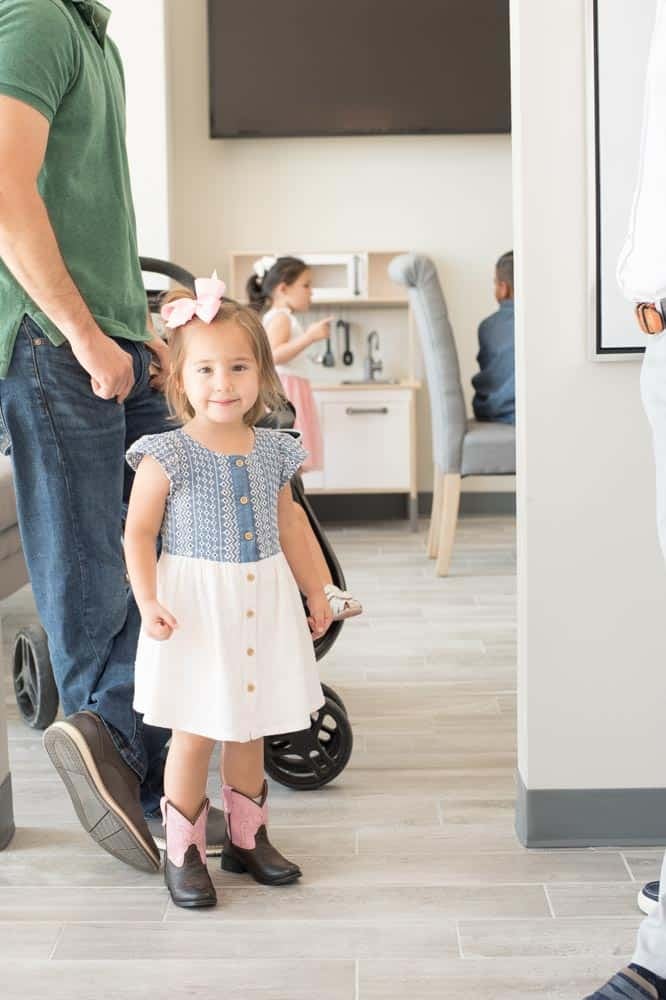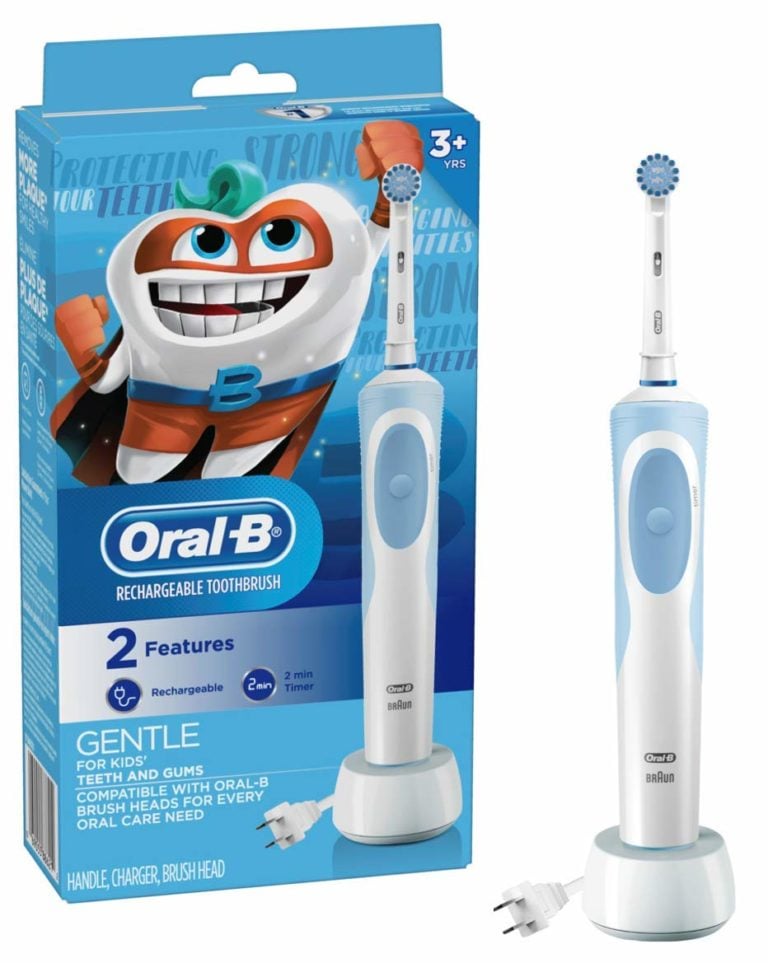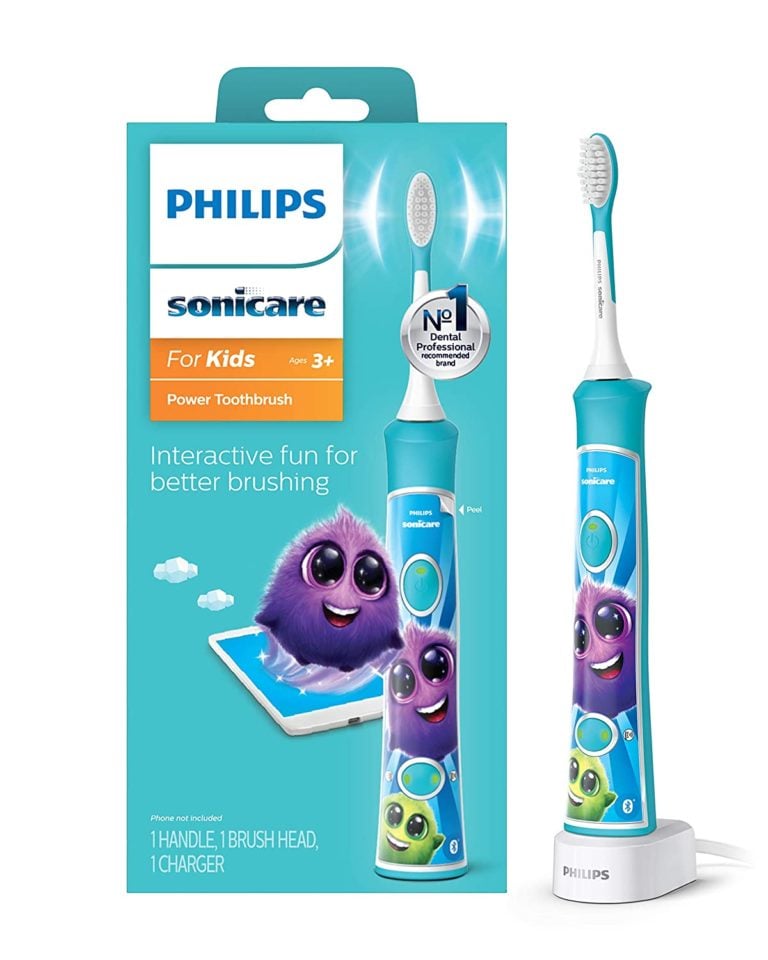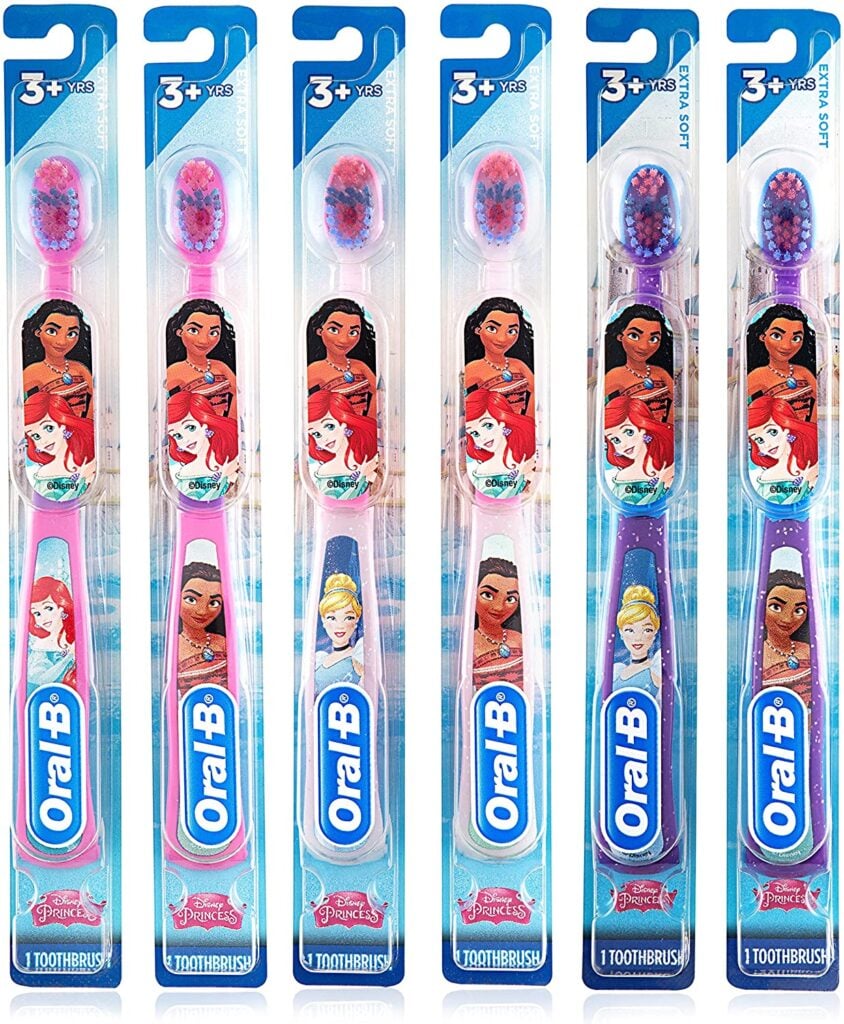by Dr. Christine Coughlin DDS
Thinking of getting an electric toothbrush for your kid?
One of the most asked questions I get is: should I get my child an electric toothbrush? What type?
I do recommend an electric toothbrush, but it needs to be the right kind.
Before you buy your kid an electric toothbrush
Some kids may not like an electric toothbrush
Kids have more sensitive gag reflexes than adults, so they’re more sensitive to the weird vibrations and noise of an electric toothbrush. Keeping this in mind can make the transition smoother.
Your kid needs your guidance
You are your child’s role model for good dental care. Show your child good brushing habits for them to follow.
If you use an electric toothbrush, your kids will be more open to the idea of introducing them to an electric toothbrush of their own.
Next, pay attention to your child’s breathing
If your child is a mouth breather (primarily breathes through the mouth, rather than the nose), he or she may not enjoy brushing, as this could make it difficult for them to breathe, making them gag more easily.
If this is what your child struggles with, introduce the various aspects of brushing at a slower pace to ensure your child has a positive experience and actually wants to brush their teeth.
Some kids don’t like the taste of toothpaste and can be turned off from brushing overall.
Start with a dry toothbrush and let your child get used to doing this before introducing toothpaste.
You technically don’t need to start using toothpaste until age 5.
Also, there are safer alternatives for small children that I recommend. Check out my blog post: Choose the best non-toxic baby toothpaste.

The most important thing is establishing good brushing habits early on.
The amount of time spend brushing, the quality of the brush strokes and your child’s ability to brush all areas of the teeth and gums are the most important parts.
Toothpaste plays a small part in comparison.
The truth is, kids aren’t the best brushes.
They also lack the coordination and visualizing abilities to brush and reach the whole area inside their mouth.
So, an electric toothbrush can help but doing more in less time, maximizing the few moments your child is willing to tolerate a brush in their mouth.
At what age should you buy an electric toothbrush for your child?
By age 2, your child can start using an electric toothbrush without toothpaste, but with supervision.
Some families choose to introduce an electric toothbrush around age 6-8 years. Some choose to do this earlier.
But don’t ever force it, as this could leave a lasting negative impression with brushing.
The ideal time a child is ready for an electric toothbrush is when they ask for one.
Your child may see you using one and ask for his own.
Brushing should be a positive family routine instead of one that causes frustration.
What to look for when buying a kids’ electric toothbrush
Despite what most parents may think, you want to buy a high-quality toothbrush for your child (the same quality as your own).
Cheaper, lower-quality electric toothbrushes can lead to abrasion and damage of the enamel of your child’s developing teeth.
Here are four things you want to look for when choosing an electric toothbrush:
- Plaque removal: A toothbrush’s main job is to remove plaque from and around the teeth and gums. A high-quality toothbrush will do this consistently and effectively from all areas of the mouth. Your dentist can compare the levels of plaque a patient has between dental visits. Also, the personal feel of the mouth after brushing is important in determining how well a toothbrushing is removing plaque.
- Brush head shape and size: head shape and size are crucial in accessing difficult to reach areas, such as around the back molars, between the cheeks, and by the tongue. This is especially crucial for kids whose mouths are still developing and smaller in size.
- Quality of bristles: It is recommended to replace a toothbrush head every 1-3 months to ensure that the bristles don’t become worn and wear away the enamel. Higher-quality toothbrushes last longer (about 3 months) than lower-quality brushes (about 1 month). Cheaper bristles will wear down more quickly and become too sharp, abrading the enamel.
- Power source: Avoid battery-powered electric toothbrushes from the supermarket, and choose a quality electric toothbrush that is rechargeable.
The best electric toothbrushes for kids
Based on my research, my favorite electric toothbrush brands are the trusted Sonicare and Oral-b (not an ad) toothbrushes because they have most studies done on them to prove their efficacy.
So, I recommend the Oral B Kids Electric Toothbrush and the Philips Sonicare for Kids (not an ad).

The Oral B Kids electric toothbrush has a small, soft head, high-quality bristles, and a comfortable grip that makes it easier for little kids to hold and maneuver.
The oscillating round head is considered more comfortable for kids than the sonic types. It’s also very effective at removing plaque.

The Sonicare for Kids uses sonic power and comes with an interactive app that educates kids and allows them to follow along with the music that alerts them when it’s time to move to the next quadrant of the mouth to ensure thorough cleaning.
This makes brushing fun and engaging for kids to stay motivated as parents could reward their kids and track their progress.
The only downside to the Kids Sonicare is that some children may find the higher-pitched noise and sonic waves frightening. So I recommend this for bigger kids (around age 9-12).

If you prefer a manual brush for your kid:
Oral-B makes the best manual toothbrushes. For younger kids (around age 2-4) that struggle with toothbrushing and are mouth breathers, the child’s manual Oral-B (not an ad) is a great option. It has a soft, compact toothbrush head, high-quality bristles, and even Disney character themes!
Conclusion
In conclusion, an electric toothbrush can be a great option for your child to brush more effectively, but make sure it’s right for your child and choose a high-quality one that suits your child’s specific needs.
The most important part of brushing is making the experience positive and consistent for your child. And be a great role model for your child to follow and make brushing and flossing fun and rewarding.
If you need help with brushing, come in anytime (you can even bring your toothbrush!) so we can evaluate your brushing tools and habits to help make it the most effective and comfortable for you.
Learn more:
Choose the best non-toxic baby toothpaste
All About Baby Teeth Care: Eruption chart, Teething, Proper care
Heal and Prevent Cavities with Hydroxyapatite (HAp) Toothpaste



